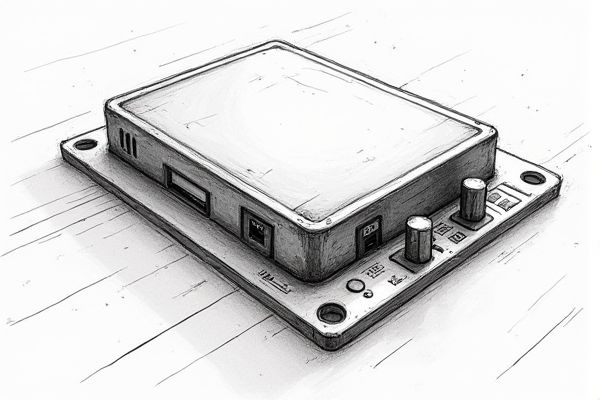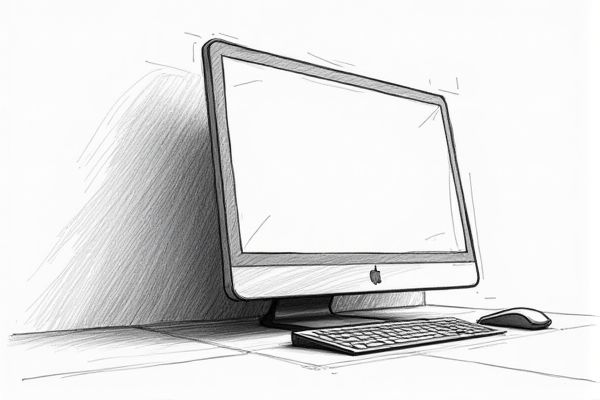In today's ever-evolving technological landscape, smart devices have become integral to our daily lives, offering convenience and connectivity like never before. From smartphones that revolutionize communication to smart home gadgets that enhance our living spaces, choosing the right brand can significantly impact our user experience. Leading the way in innovation and user satisfaction, several brands have emerged as pioneers, providing cutting-edge technology and sleek designs. As we explore the top brands known for their smart devices, discover which ones are leading the market with their exceptional offerings below.

Illustration of smart devices
Best brands of smart devices in 2025
Apple
Apple stands as a paramount producer of smart devices, commanding a significant market share in the U.S. with over 57% of the smartphone market as of September 2024. The company's iOS operating system dominates the U.S. market, with Apple's share rising steadily since 2012 from around 30% to more than half of the market today. Apple's commitment to innovation, customer satisfaction, and attention to detail has driven its high Net Promoter Score (NPS) of 72 in 2022, reflecting strong customer loyalty. Globally, Apple's iPhone market share was 17.7% in the second quarter of 2024, solidifying its position among the top smartphone vendors. The company's focus on unique hardware and software, such as the AirPods and Apple Watch, further enhances its market presence. For additional insights, visit the market share statistics for smartphone platforms in the United States.
Samsung
Samsung is one of the leading producers of smart devices, consistently holding a significant share of the global smartphone market. As of October 2024, Samsung has a 22.82% market share, making it the second-largest smartphone manufacturer after Apple, which holds 28.38%. In 2023, Samsung shipped around 226.6 million smartphones worldwide, accounting for 19.4% of all smartphone shipments globally. The company's Galaxy series, first released in 2009, has been a major driver of its success, with Samsung's market share increasing from 3% in 2009 to 32.2% in 2012. Samsung's dominance extends to other smart devices, including tablets, laptops, and home automation solutions. For more information, you can visit their official website.
Google stands as a leading producer of smart devices, with its Google Home smart speakers holding a significant 27% market share in the US as of 2023. The Google Home app has been installed over 500 million times, and Google Assistant is integrated into over 1 billion devices, supporting more than 30,000 home devices globally. By 2025, it is projected that over 140 million Google Home devices will be sold, and the global smart home market, in which Google is a key player, is expected to be worth USD 100.42 billion in 2023. Google Home devices respond to voice searches with an impressive 81% accuracy and can identify around 119 languages. This robust presence in the smart home market solidifies Google's position as a top innovator in consumer tech.
Amazon
Amazon remains a dominant force in the smart speaker market, holding around 60-75% of the U.S. market share as of 2023, with its Alexa-enabled devices such as the Echo and Echo Dot being highly popular. The company's early entry into the market in 2014 and continuous innovation have contributed to its significant market lead, with 64% of Americans and 73% of people in the UK owning an Amazon Echo by 2023.
Microsoft
Microsoft is a leading producer of smart devices, renowned for its dominance in the tech industry. As of 2023, Microsoft's Windows holds an almost 70% share of the desktop operating system market, and its Office 365 has a significant 45.46% market share, closely following Google Workspace. The company's Xbox platform has seen substantial growth, with 120 million monthly active users by the end of 2022. Microsoft's annual global revenue reached $211.92 billion in 2023, highlighting its financial strength and market influence. The company's commitment to innovation, as seen in its Secure Future Initiative and advancements in AI technology, further solidifies its position as a top producer of smart devices. For more information, visit the official Microsoft website.
Huawei
Huawei has solidified its position as a leading producer of smart devices, with approximately 900 million devices now using its HarmonyOS, a significant increase driven by the success of its Mate and nova series. In the first quarter of 2024, Huawei regained the top spot in the Chinese smartphone market, shipping 11.7 million smartphones and capturing a 17% market share. The company has also seen a 72% surge in premium smartphone sales and has expanded its HarmonyOS to various products, including watches and TVs. Huawei's market share in global tablet shipments stands at 7.6%, and it holds a 17% share in global smartphone shipments as of the fourth quarter of 2023. The company's app store is the world's third-largest, with around 421.8 million monthly active users.
Xiaomi
Xiaomi has established itself as one of the leading producers of smart devices, capturing a global smartphone market share of 11.9% as of January 2024, making it the third-largest smartphone brand worldwide. In 2023, Xiaomi generated $37.47 billion in revenue and shipped 40.7 million devices in the fourth quarter, with a significant presence in Asia and Latin America. The company's MIUI platform has a massive user base of around 606 million globally, and its smart TV shipments have reached 66 million units. Xiaomi's wearable market share stood at 11% in the second quarter of 2023, with 4.8 million units shipped. The brand's products are available in over 100 countries and regions worldwide. For more detailed information, visit Xiaomi statistics.
Sony
Sony is a leading manufacturer of consumer electronic products, particularly excelling in the smart TV market where it increased its share and pushed past Vizio to become one of the top three brands in Q3 2021, according to Parks Associates. As of 2023, Sony holds a 27% market share in the global TV market, making it the world's biggest TV seller. The company's smart TVs, including the Google TV Bravia models, have seen significant growth, contributing to the overall increase in smart TV adoption, with 56% of U.S. homes owning a smart TV. Sony's innovative products and strategies have helped it maintain a strong position in the consumer electronics industry. The company continues to innovate, aiming for net-zero emissions by 2040 and transitioning to 100% renewable energy by 2030. For more details about Sony's latest innovations, visit their official website.
LG
LG Electronics is one of the leading producers of smart devices, particularly in the smart TV market, where it holds around 11.7% to 18% of the global market share. In 2023, LG's Home Entertainment segment generated over $11 billion in revenue, making it a significant contributor to the company's overall performance. LG's smart TVs are popular for their 4K resolution, with 70% of LG's smart TV sales being 4K models. The company faces stiff competition from other tech giants like Samsung, Sony, and Panasonic but maintains its position through innovation and competitive product lines. By 2030, the Indian smart TV market, where LG holds an 8.5% share, is expected to grow significantly.
Fitbit
Fitbit is a leading producer of smart devices, renowned for its advanced health and fitness tracking features. Despite facing competition from tech giants like Apple, Samsung, and Xiaomi, Fitbit holds a significant market share with approximately 4.4% of the global wearable market in 2020, and over 30 million active users worldwide in 2021. The company's devices, such as the Fitbit Sense 2 and Fitbit Inspire 3, offer robust health and fitness tracking, including step counting, sleep monitoring, and heart rate tracking, with the Fitbit app surpassing 50 million downloads on the Google Play Store in 2023. Fitbit's global shipments have included over 143 million devices sold, and the company was acquired by Google for $2.1 billion in 2021. The global fitness tracker market, led in part by Fitbit, is projected to grow to $187.20 billion by 2032, with a CAGR of 17.3% from 2023 to 2032.
















Leave a Reply
Your email address will not be published.